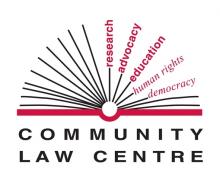Dullah Omar Institute | University of the Western Cape
The Dullah Omar Institute, formerly the Community Law Centre, at the University of the Western Cape (‘the Centre’), established in 1990, works to realize the democratic values and human rights enshrined in South Africa’s Constitution. It is founded on the belief that constitutional order must promote good governance, socio-economic development, and the protection of the rights of vulnerable and disadvantaged groups. Given the need for regional integration to encourage development in Africa, the Centre also seeks to advance human rights and democracy in this broader context. Based on high quality research, the Centre engages in policy development, advocacy and educational initiatives, focusing on areas critical to the realization of human rights and democracy in South Africa and Africa in general.
The Centre focuses on these initiatives:
- The Children’s Rights Project, which works towards the recognition and protection of children’s rights in all spheres of society, with a particular juvenile justice; children in especially difficult circumstances; the legal position of children in family life or alternative care; structures of governance relevant to children's rights; constitutional law and legislative law reform;
- The Civil Society Prison Reform Initiative, a research and advocacy project focusing on prisons and places of confinement in the African region, with the aim of furthering constitutional and human rights imperatives within these settings;
- The Gender Project, which works towards the achievement of substantive gender equality and the realization of women’s rights;
- The Local Government Project, which assists local government to give effect to its constitutional mandate and promotes accountable and democratic governance and socio-economic development;
- The Socio-Economic Rights Project, which focuses on the realization of the socio-economic rights of groups and communities living in poverty;
- Privatization Project, which focuses on the implications of human rights and democratic norms for the privatization of essential services (Joint Project);
- Housing Project, which works towards strengthening the capacity of informal community structures to promote the realization of women and girls’ rights to have access to adequate housing as a means of reducing their vulnerability to HIV/AIDS (Joint Project).

